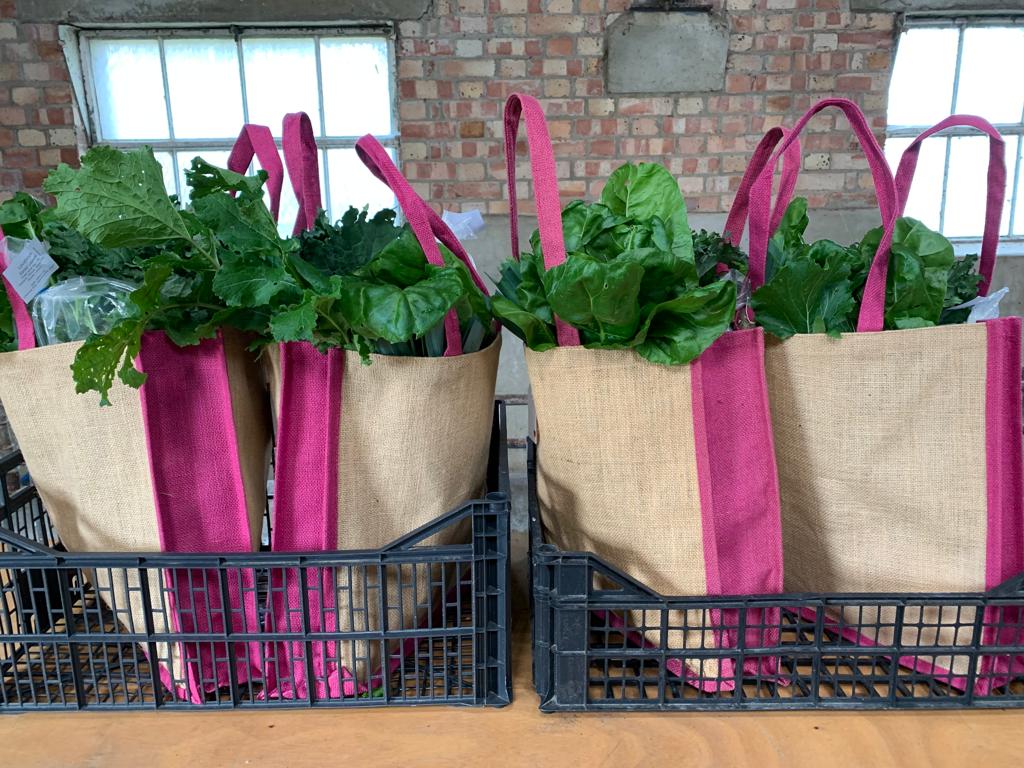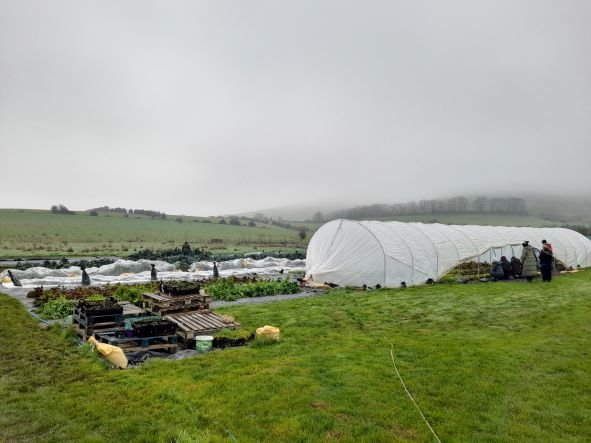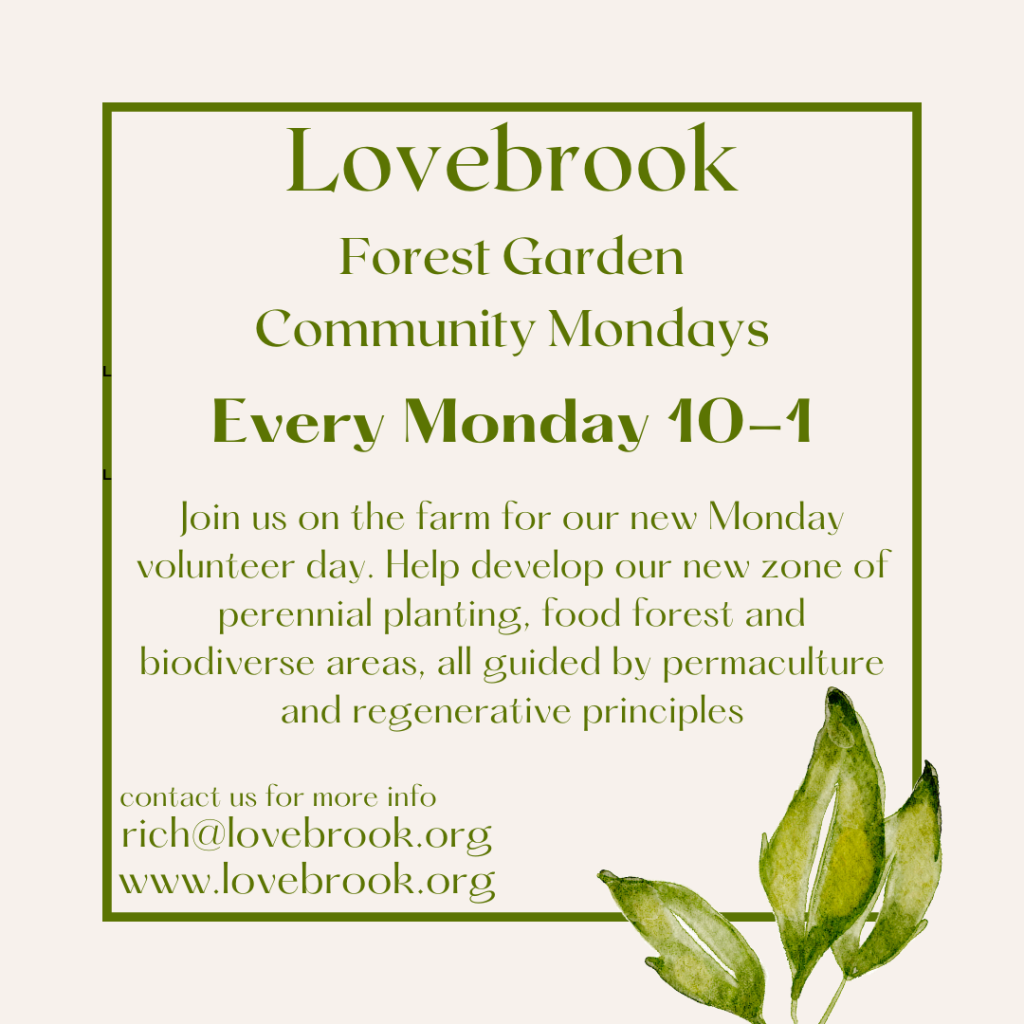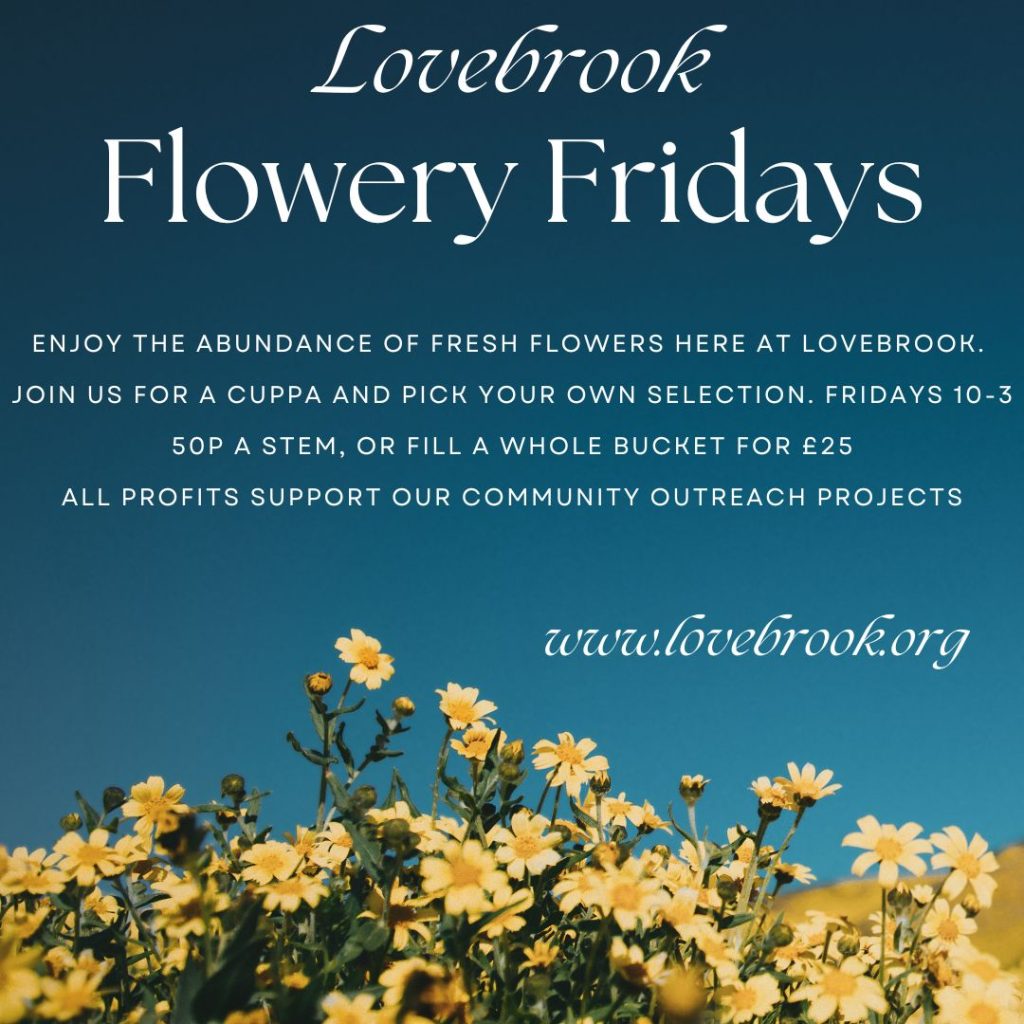I take every opportunity I can to visit Lovebrook Farm in Kingston Nr Lewes, it’s a wonderful place with a deep connection to nature. Hannah and Richard are the custodians of the land and bring their experience of community work to the 33 acres, wanting to share the rewards of being in nature and going back to basics to grow our own food with everyone in the community.
“The ambitious project includes a market garden, orchard, therapeutic wellbeing days, farm shop, and plans for a forest garden, areas of rewilding, chalk grassland, woodland planting, camping areas and laying hens.” – Lovebrook.org
The first time I visited was on a day trip organised by a Brighton & Hove Project called Soil in the City that aimed to bring people from urban areas in to the rural spaces to see local food production. It was a frosty winter morning and although our toes had frozen stiff, we enjoyed being shown the edible and medicinal herbs growing naturally across the land, we got busy foraging and Richard showed us how to make a tincture in the outdoor communal space.




I was lucky enough to visit again in spring and the comparison was great. There was a group of trainees busy working in the polytunnel and in the beds. Hannah is passionate about the space being used for learning and giving people opportunities to learn regenerative practices. There are also regular volunteer days including ones with a well-being focus for those of us who like a slower-pace.
Hannah showed me the area which has been given to a local group that brings pre-school children to have a go at growing veggies, plus an area which will be developed in to a food forest, and a well-being space with a fire pit. To round it all off they have a camping field where you can enjoy a night nestled in the South Downs.

Lovebrook has four growers that help look after the Veg Bag scheme by growing deliciously fresh and crunchy produce. I enjoyed tasting many different varieties of salad leaves and left with a bundle of tangy coriander. Richard can be found at the Lewes Farmers Market selling local harvest, or produce can be bought in their farm shop. (links below)
The community work is supported by the commercial venture so that a circular economy is in place where the Farm Shop and Veg Bag scheme, as well as the camping, gives and creates space for the benefit of the community, and vice versa.

